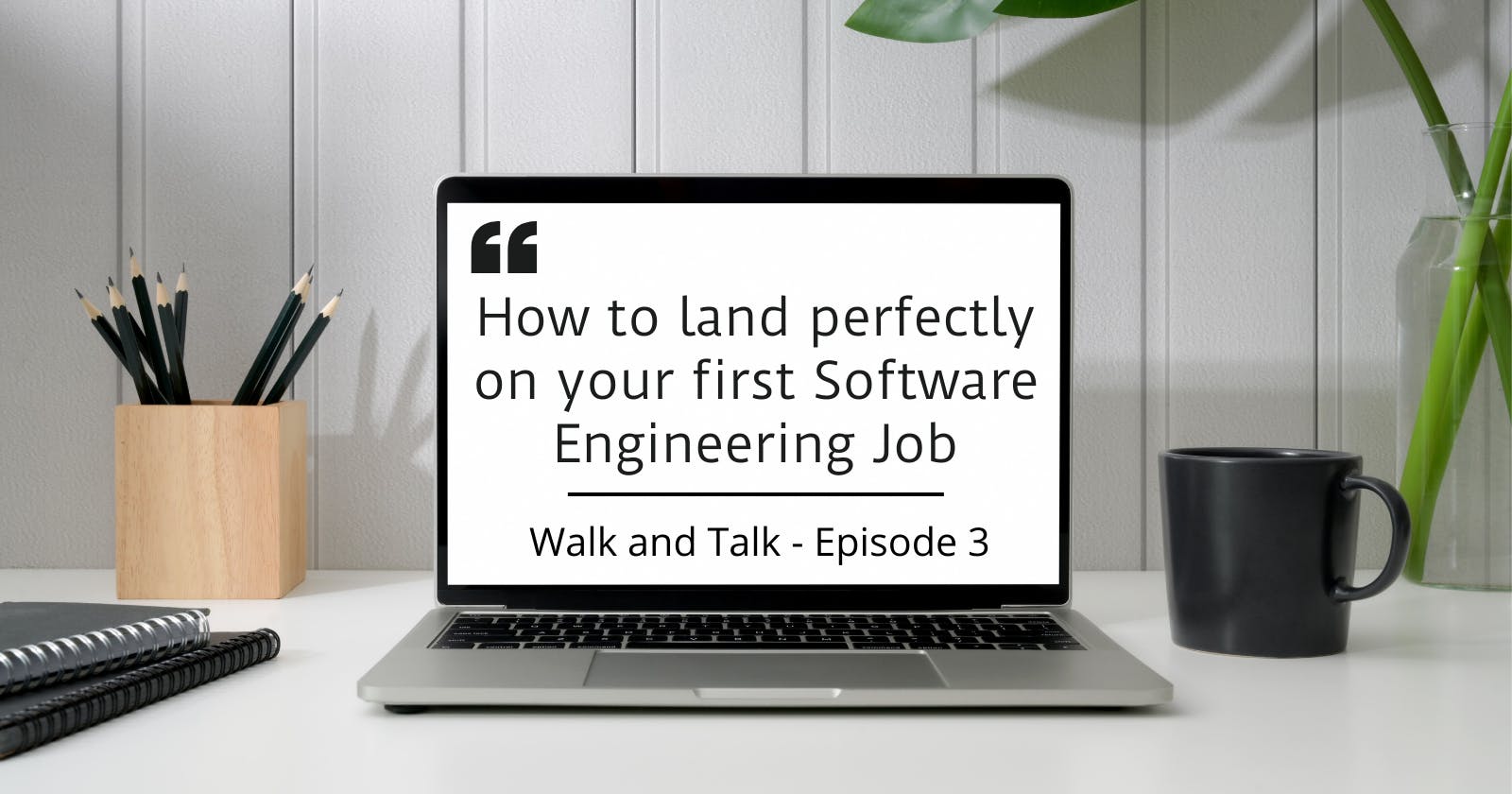How to land perfectly on your first Software Engineering Job
Walk and Talk - Episode 3
What was your dream job back then? Being a pilot? Being a doctor? I am a citizen of Sri Lanka. Every Sri Lankan parents' dream is to make their child, a doctor or an engineer. We were running the rat race from day one. Study hard, make good marks on exams, study, study that was everything. In Sri Lanka we have this grade five scholarship examination and every parent pushes their child into that. When children from other countries were doing handcrafts in grade one and two, we were adding numbers. When others were playing in the fields with their friends, we were going to tuition classes. I had the same story. But, after 13 years later, I HAVE FAILED MY ADVANCE LEVEL EXAM.
I did not know what to do. I was so broken inside. I was not a bright student back then. Only thing I knew was computers. I did not know programming. But what I did know was to play games and do power point. Then it struck to me. 'Why not a something related to IT?'. So, I looked for private universities which had IT degrees and found one with a Software Engineering degree. I had nothing to show for, except a failed result sheet. So, I had to do a foundation course and finally I was able to start my journey as a Software Engineering student. Three years later, I graduated.
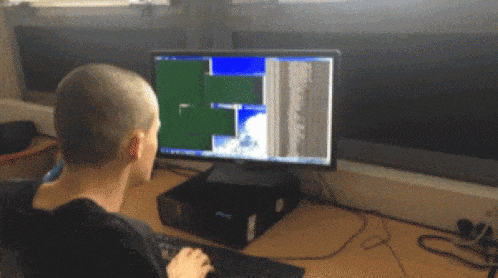
Landing on my first software engineering job
I thought the graduation was the hard part. But, I could not be more wrong. The hardest part was to find my first job as a Software Engineer. I did not know how to make a CV first, so I googled and found a CV template and updated it. Then I sent to some companies and one company called me for an interview. A week later I went for the interview and guess what? IT WAS A DISASTER. I could not answer many questions they asked for. And I knew they would not hire me as for the job. So, I took a step back and googled again about the interviews. I had to make sure I pass the next interview.
So, to the topic. What should you really do before you land on your first job?
Prepare your weapons.
Guns? Nope! The knowledge. First take your time to identify yourself. Who you truly need to become. Then work on that. Read articles, questions, blog posts that related to your desired field.
I made the schoolboy error of casting a wide net at the start of my job search, believing that "they should hire me". But, no matter where you end up, you'll be spending the majority of your time at your job. What's the point if you can't get excited about going to work, or, nastier, absolutely hate it? Make a list of priorities that you are looking for. What kind of job that you seek to join. My priorities were simple.
- I needed a good work life balance.
- Opportunities and tech stacks where I can grow myself as an engineer.
- Challenging problems and ways to solve them.
- Good management.
Make sure you have something to show for. Usually at your first job, you will not have any prior experiences with projects. Is that true? Nope! You can build your own projects for your imaginative company, tackle the problems with your own solutions. They consider those as prior experiences with projects. Create a GitHub profile. Learn Git. And push your every bit of code to the profile, so the interviewers can see what you have been doing.
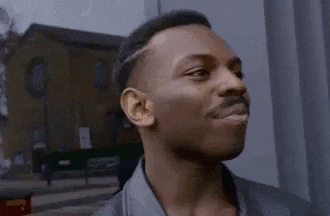
Build your network.
Find people who do the same work as you. If you are trying to land on a software engineering job, try to build your network around that. See what they usually post. Engage with their posts. Like them, comment on them. Make your self stand out on those posts.
How and where can you build your network?
For every job seeker and professional, LinkedIn should be on top. LinkedIn is a community full of professionals in many areas such as technology, cookery, transportation, management and many more.
It is less spam-infested unlike many, the profile allows you to adaptively display all of your expertise, and, most notably, it has powerful and inexpensive connectivity features.
It's simple to expand your network on LinkedIn, but it involves more than just having to add every person you can consider of as a connection. The threshold for the quality of the relationship needed to request a referral is minimal, but not so minimal that you can simply be linked — you must have engaged in a (positive) conversation. This does not say that the interaction cannot begin or continue entirely on LinkedIn. So, who should you contact and how should you begin the conversation?
Visit the job portal and look for a few positions that inspire you. Look for companies that have former or current coders with whom you share something in common. You could have graduated from the same degree program or training course, or you could both have a solid desire to transform the world. Whatever it is, if they have previously hired people like you, they are likely to do so again.
You must also be prepared to discuss the strengths and flaws of your project with an interviewer. Many of my interviewers pulled up my GitHub page and started asking me to walk them through my code. I definitely bobbled the first time this occurred because I hadn't looked at the code in months at least! Preparation is crucial.
School Alumni
There is a high chance that people who were with you looking for the same jobs as you do. Eventually, they might get hired as well. Most companies hire people through referrals from insiders and if you can build your network with them, luckily they might be able to refer you for their company.
Also, your alumni group can be your support group where you can look for help whenever you face problems regarding coding and as well as your personal life. Humans more tend to success with their peers rather than going alone. Also, you can get ideas about interviews and how they have faced them in order to join the company. Connections can only be bad, if you made them with wrong people.
Next thing is events. From there you can find people like you as well as new opportunities if you join the correct event.
When you go to an event, talk to people, ask questions, and begin making contacts. If that's not your style, you can jot down the names and emails of people you find interesting and connect with them later on a not so public method.
This can be controversial to some people. But if you follow correct people you will be able to get more knowledge about many things. I am a Software Engineer related to PHP, so mostly I do is follow people or companies related to PHP in twitter. Whenever they have updates about their technologies, first thing they do is posting a tweet in twitter. So, you will be able to keep your self updated about technologies more often than ever.
There can be many more ways to make connections. I have mentioned only the main things that I have done to land on my first job. If you found other interesting methods you can connect with people and make connections, feel free to add them in comment section so others can also follow them.

Do not use the same resume for every company
One mistake that rookies do is, making a resume in a general way, where they can send to multiple companies. You should not be doing that. Every resume needs to be altered and catered to perfection. And it should be according to the company you are looking for. Read the job description well and identify the keywords that they ask for. Add them into your resume in a creative way. Most companies do not read your resume's at first. They go through a system that selects most matching resumes. If your resume contains the keywords they are looking for, there is a high chance that your resume will have a spotlight on their system and jump through the first hurdle.
Most importantly, create your resume as per the job role you are looking for. As an example, if you are looking for a job as a Junior or an intern software engineer, they will not look for your photoshop skills. So, do not make your resume as flashy as possible. Your resume should be simple and should have everything about your projects, experiences and so on. It is a different story if you are applying for a designers job. In that case, your resume should show what you are capable of. So, a little flashy resume will not hurt you.
Cover letter plays a big role in hiring and has a huge advantage to yourself. They never call you before they see your resume. And your cover letter is the place to market yourself to your interviewer or the hiring manager. Make an attractive cover letter (the content should be attractive, not the letter itself) and try your best to sell your self to your hiring manager.
Your salary is the monthly subscription fee that the company pays you for your services. So, sell your self creatively.
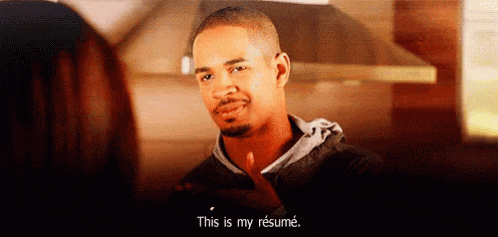
Do not mess the interview, lying is not an option and failing is not failing.
Your ultimate goal is to attend to the interview and get selected, so once you get selected to an interview, try your best not to mess it up. Most of the times interviews consists of three parts.
- General interview or the get to know interview
- Technical interview
- HR interview
Your target is to pass all these interviews. Not just one. Be prepared with your self. NEVER GO TO AN INTERVIEW UNPREPARED.
YouTube has content about creative answers for the majority of the interview questions. Isn't that like practicing the questions? Yes! If you have to. One word can mess your interview completely. So practice with yourself before you jump in on an interview. Do I need to memorize the answers? Again YES! You have to. Because negotiation is an art, selling yourself is an art. You cannot master an art without practicing it.
So, is it okay to lie in an interview? NEVER! That is one thing you should not do in an interview. Even though you lie in an interview, you will be in a big trouble when you get the job. You will be dragging yourself to floor as well as the others. So, NEVER LIE IN AN INTERVIEW. Be honest! Memorize the mastering techniques about selling yourself, not about lying.
Even though you completed an interview without any issue, there could be a better person than you. In that case, you will get rejected and you might need to send your resume to another company. But keep this in your mind. Failing is not failing. If I did not mess up my first interview, I would not know these things. Make your failures into learning opportunities. Hit hard on the next interview. If you fail that again, learn again. And hit much harder on your following interview. Never ever give up. Edison had one thousand failures before finding the light bulb. If he had given up, just think how dark the world would be today.
So, these are things I have done to land my first job as a Software Engineer. After the first unsuccessful attempt, it had taken me around a month to make all these things. But trust me, it is worth it. After that, I have never failed an interview yet.
If you haven't failed an interview yet and you are looking for your first job, do these things. It will never fail you. If you have multiple unsuccessful attempts, do not worry. Next attempt will be a success if you follow these. Trust me. I have mentioned these from my own experience. If it worked for me, it must be for you.
Good luck!
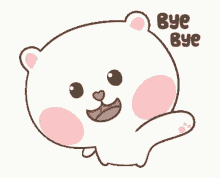
This article was published as the #week1 article for #4articles4weeks.

